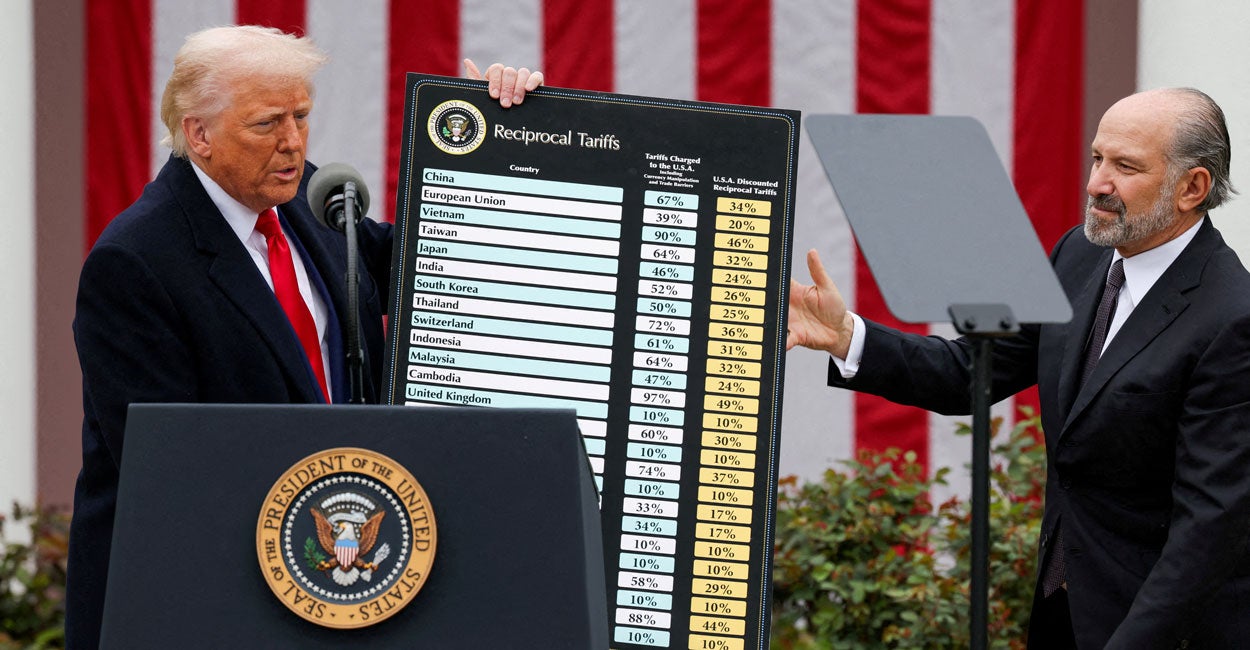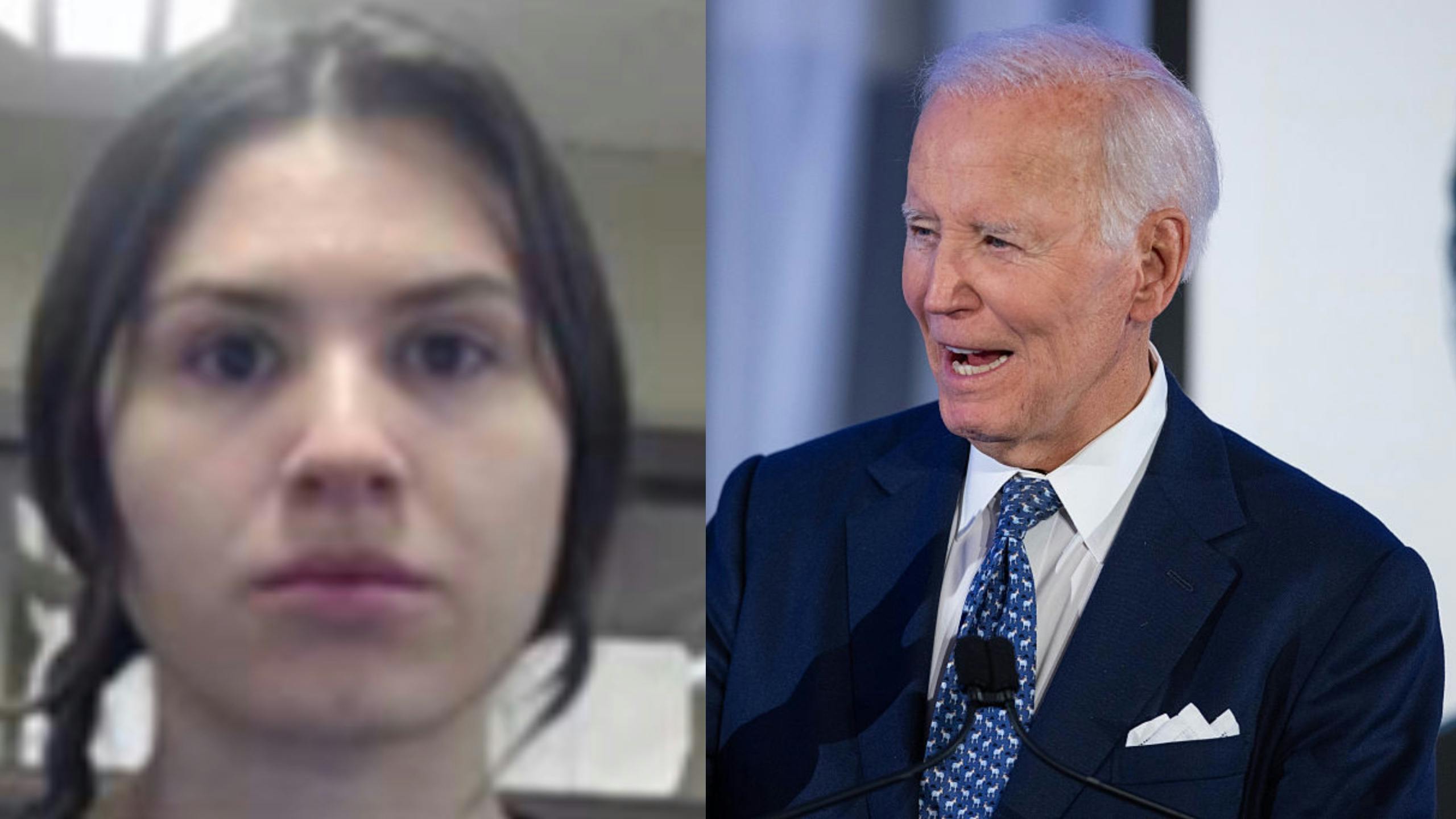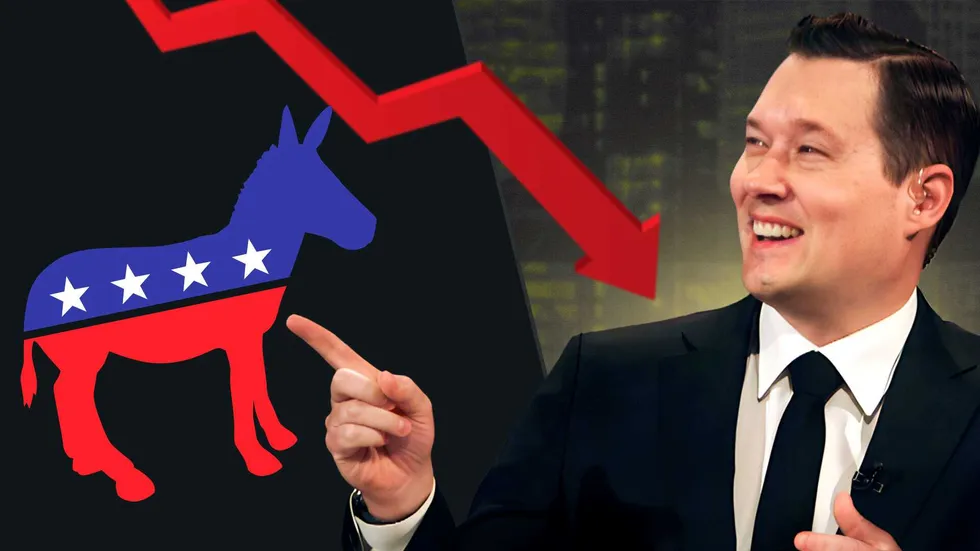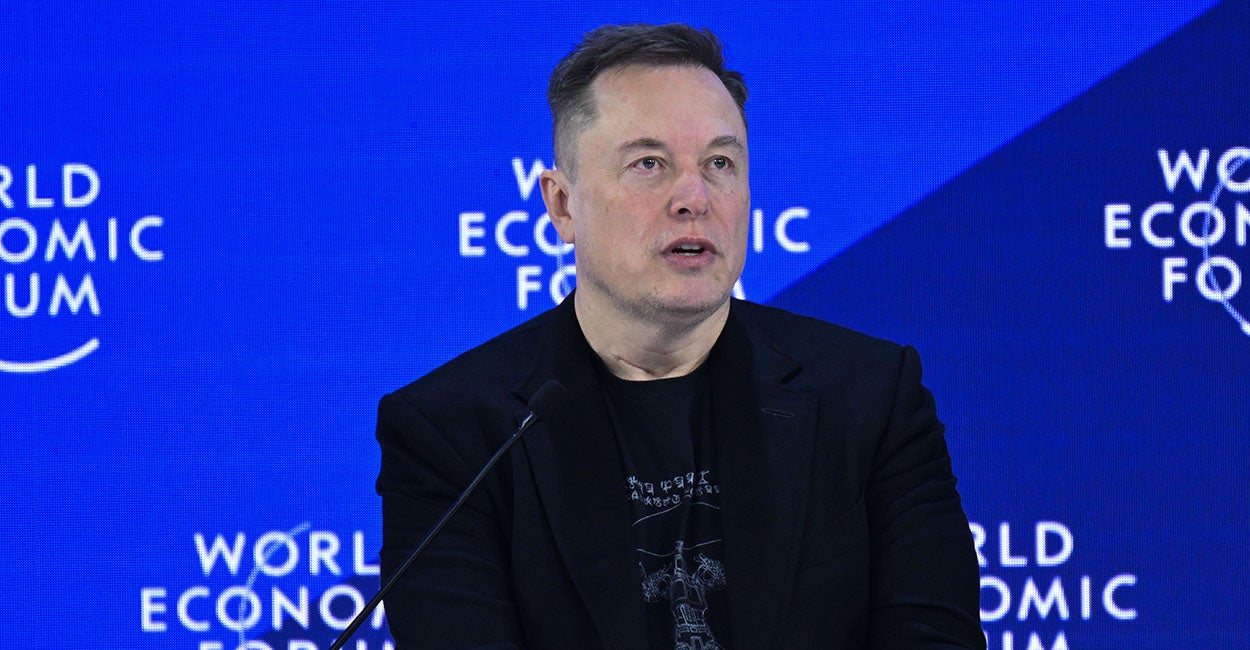Democrats’ Chaos Strategy Will Backfire—Here’s Why
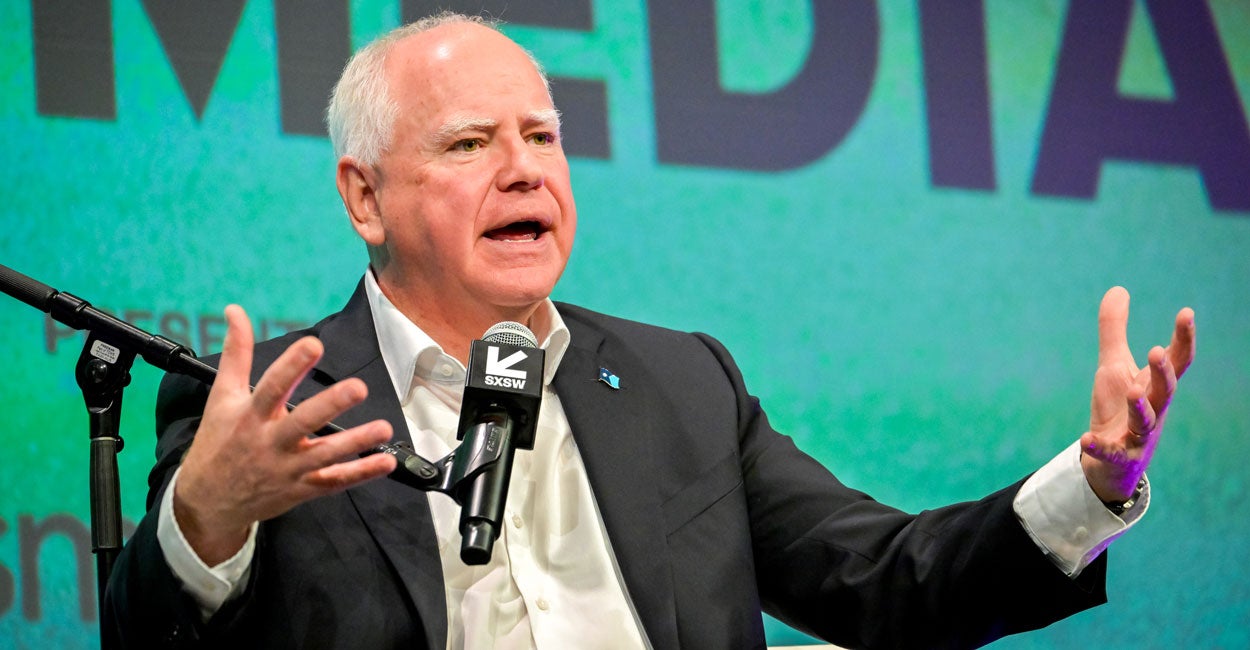
Victor Davis Hanson appeared on “The Tony Kinnett Cast” to discuss Democrats, the 2022 election, and more. Watch the interview above or read a transcript, lightly edited for length and clarity.
Live Your Best Retirement
Fun • Funds • Fitness • Freedom
Tony Kinnett: With all of the burning fires, chaos, and shenanigans—and of course, I’m only talking about Minneapolis with the [Democratic National Committee] right now—we have to go to some of the experts to talk about the times these things have happened before. Because I know right now it looks as though, with things descending into chaos, they may not pull out for particular parties, but some people do, in fact, know better. And one of the guys who knows the best of the better is Victor Davis Hanson. You know him. You love him. We all do. Sir, thanks for joining us.
Victor Davis Hanson: Thank you for having me.
Kinnett: So, I want to get to your latest book, “The End of Everything: How Wars Descend Into Annihilation.” A nice, calm, soothing work, I’m sure. That’s coming out on [Sept.] 2nd.
But before we get to that, I got to ask, the chaos, the cacophony of insanity up in Minneapolis, the screeching about land acknowledgements and trans this and [Minnesota Gov.] Tim Walz yelling about red hats—I got to start to say I’m a little curious as to whether or not the Dems are going to be able to pull themselves together in time for the midterm. I mean, do you see them coalescing around anything at all between now and next November?
Hanson: Well, they only have one unifying theme, and that is they all want to destroy and they hate [President] Donald Trump. So sometimes they hit watermelons. Sometimes they do the filibuster, [Sen.] Cory Booker style. Sometimes they make those obscene videos. Sometimes they kind of go crazy. But otherwise, they’re not offering any counter agenda. They don’t say, “Well, we would prefer this on the border, and here’s what we’re going to do,” or, “Here’s why we should return to the New Green Deal.”
They’re on 30% to 40% of every issue. They don’t own the House or the Senate or the White House or the Supreme Court. They lost the popular vote and the Electoral College—first time since 2004.
So, I think they’re very frustrated, and they’ve got this Jacobin radical base. And I’m not sure that’s the right term for it anymore, base, because I think they’ve taken over the entire party. And what you saw in Minneapolis, whether people like [Sen.] Chuck Schumer or [Rep.] Nancy Pelosi or [Sen.] Elizabeth Warren agree with that doesn’t matter because they condone it and promote it.
And I guess only three times in the last a hundred years has the out party in the first term of administration not won House seats. And because it’s so close, it doesn’t mean even though they’re polling as a party about 28%, they feel they can drive down Donald Trump’s. I don’t think the polls are that accurate. It’s probably more like 50/50 rather than some of these crazy polls that have him down 10. But I think it’s pretty close.
But they feel that the more antics, the more hysteria that they can generate, it’s kind of like collateral damage or a nuclear weapon. It just makes everything so chaotic that they can say, “Trump made us like this. He brought out this. He’s the disruptor.” And you saw that with Tim Walz.
It doesn’t make sense, but they just want to create a general atmosphere that things are chaotic, that there’s no organization to anything, that we’re in the middle of a tumult, and that they’re going to stop that, and that’s what they plan.
Kinnett: So, I see Tim Walz, or I see Sen. Alex Padilla, or one of these—when it was [Rep.] Maxine Waters yelling outside the Department of Education. And I see them trying to push things into this mutually assured destruction, annihilation kind of stuff. But they’re doing so in a way that is really awkward. Like the young lady that Elise [McCue] filmed down at Union Station yelling at the police officer about her keffiyeh.
And it just is awkward. We’re starting to go back into that phase where just yelling out in the open carries with it a bit of shame, maybe not for the person that’s doing the yelling, but for the rest of the country. I mean, that theoretically should hurt the voting turnout for that side of the aisle in 2026, but we’re not really doing, in theory, traditional stuff anymore.
Hanson: Yeah. I have two views of it. Every data point is negative for them. They not only did not register as many, 2 million, as the Republicans in additional registration, but they lost registration. They’re bleeding about 5 million people a year, leaving the blue states.
Kinnett: I was going to say, and that’s just in the 30 states that record voter registration.
Hanson: Yes. And in addition to that, if you look at the fertility rate long term, the top 10 red states are up to 1.8 to 2, in the bottom of the 50 states, down to 1.3 and 1.4 are all blue states.
Kinnett: Who would’ve thought that telling hyper-depressive ladies that they shouldn’t have children or they’ll kill the planet might have consequences?
Hanson: Yeah, that was a bad idea by [Rep. Alexandria Ocasio-Cortez], but it kind of predated her. And so, the long term is not good for them. And I think that is a lot of their hysterias. They can’t come out and say, “This is what our agenda is that 55% of the people want,” because their base or this new youth or whatever this group is … so they won’t allow that.
So, I think their attitude is, “I have to dissimulate. I have to be nominated. If I’m going to get a national candidate, he’s got to get through the primaries. And to get through the primaries, he’s got to be crazy. And then he has to have the gymnastics that he can change and go to the middle to win an election.”
And it didn’t work with [former Vice President] Kamala Harris. She tried that half-heartedly at times. But that’s their problem.
Kinnett: Isn’t it a little strange that the strategy of we have a California Democrat with a crazy social media strategy is now they’re trying the exact same thing less than a year later that they tried with Kamala. Now they’re trying it with [California Gov. Gavin Newsom] as though that’s going to rally the voters in Pennsylvania.
I mean, at this point, we’ve talked about, you mentioned AOC, the only other contender like [Maryland Gov.] Wes Moore, maybe [former Transportation Secretary] Pete Buttigieg. And did you see the poll suggesting, the Echelon poll, I believe, Pete Buttigieg’s support in the black communities in this country is 0%?
Hanson: Yes. He comes off as sanctimonious, self-righteous, sort of an elite scold. He has no charismatic appeal to anybody. And so, he’s not going to be a candidate. And Gavin Newsom’s strategy, he thought, was to sound like the moderate candidate when he had Charlie Kirk and Steve Bannon. And then he realized that he would never be nominated in this lunatic party.
Kinnett: Did he invite you on?
Hanson: What?
Kinnett: Did Newsom invite you on his podcast?
Hanson: No. I’ve been very critical of him. So, he’s got this disaster in the Palisades where they haven’t done anything. The whole thing was created by DEI people going to Uganda, the public works people not having hydrants that work, a reservoir was empty, they wouldn’t let people clear the brush—it was a self-created disaster, and now it’s even worse. They won’t allow them. You’ve got the highest taxes in the country, highest gas taxes, highest number of poor people, highest percent—goes on.
Kinnett: OK, come on, come on. You’re saying this as though it wouldn’t appeal to Pennsylvania union coal miners or fuel refiners. Man, what an absolute surprise.
Hanson: So, I think their only strategy is just to create so much anger and hysteria and street theater about Trump that the people will say to themselves, “Well, I don’t know who’s right. I don’t know who’s right, but I just can’t take it. I’m in a fetal position. I have my hands over my ears. Just make it all go away. Maybe it didn’t happen until Trump came.”
And their attitude is, “Well, it was legal to break the law and bring in 10 million, and that was an easy thing to do. But for Trump to enforce the law, that’ll be amoral. And it’s very difficult to find the people we let in, so we’re going to stage these performance art protests against enforcing the law, and people with amnesia will not remember that we broke the law.”
Kinnett: You say “performance art” as though this is kind of—I don’t know, this is supposed to be some kind of a colloquial phrase to suggest some type of protest where the heart isn’t in it, it’s just performative. No, they’re actually doing real performance art. I don’t know why I’ve seen the same almost Barney Fife from “The Andy Griffith Show” church choir protest, singing now for Kilmar Abrego Garcia, making up songs and singing out of tune. How is this their strategy?
Hanson: I know. They all dress up in the same colors, or they bring a mariachi band.
Kinnett: … your expertise is in recognizing patterns throughout history. And this is one of the things that I was always fascinated with, seeing these same things play out again and again.
When you have a group of people that are pushing for total chaos, they don’t realize that they could be flirting with the summative annihilation that does, in fact, accompany open chaos and war. And in the new book “The End of Everything,” of course there’s a lot of places that we could go throughout history, talk Carthage, Constantinople, the Mayans, talk about Thebes. But you do the classic Victor Davis Hanson thing by touching on all of those. Tell us about it.
Hanson: Well, most wars don’t end with annihilation. They either have a ceasefire or interrupted war until the next one, or a negotiated settlement of some kind or unconditional surrender. We didn’t even destroy Germany. I mean, we hurt it, but we tried to rebuild it very quickly. Same with Japan. But there are times in history where the losers were annihilated, and I define that by losing their language, culture. And they disappeared as a people.
Kinnett: Erased from existence, to quote Doc Brown.
Hanson: Yes, they did.
So, I looked at four of them—classical Thebes that Alexander the Great destroyed, and there was no Thebes after. They rebuilt it, but they weren’t rebuilt by Thebans.
Kinnett: Because there were no Thebans left to build it.
Hanson: Not really, no. He killed all the adult males. He enslaved the rest. And then people in the surrounding area, 16 years later, they rebuilt the city and said they were Thebans. But the dialect, the history, it was all gone.
Same thing with Carthage. Scipio Aemilianus, in the Third Punic War, annihilated, destroyed it. I don’t think he sowed the ground with salt. That was a medieval addition to the story. But there was no Carthaginian language or literature, and there had been, after that.
Constantinople was a little different in 1453. Mehmed, the sultan of the Ottoman Empire, destroyed the city but he kept a lot of the infrastructure intact, but he reengineered the DNA. So, he started to put minarets on the greatest cathedral in Christendom.
Kinnett: Like a cultural whitewash that leached more than it just—
Hanson: Yes.
Kinnett: Well, again, when you say Carthage, a cultural salting of the earth instead, then.
Hanson: Yes, exactly. And there was no Byzantine Empire after that in Asia Minor, and it had been there for three millennium. And then Hernan Cortes destroyed, between 1519 and 1521, finally, he destroyed Tenochtitlan, which was the Aztec capital. And there is a Nahuatl language dispersed, but there is no Aztec culture anymore. The conquistadors destroyed the religion, the language, and created a mestizo replacement.
But again, and then I was wondering, why were these things happening? And the answer is usually that these societies were in decline. They were not aware of it. They didn’t understand the nature of their enemies. They didn’t have any idea that the people outside the walls, they were intellectuals, oddly. Alexander the Great was a student of Aristotle. Scipio was a Scipionic Circle. But they were also psychopaths. They wanted to destroy them, and they were killers. They misinterpreted that, perhaps because—and probably because—they thought they were men that were enlightened and wouldn’t do what everybody said they were going to do. They thought allies would come to their help.
Kinnett: And after all, every heart yearns for freedom and love and friendship and other nice, warm nonsense.
Hanson: In negotiations, the Romans convinced the Carthaginians to give up their weapons and said that we’ll treat you fairly. And then, of course, they besieged the city and destroyed it.
So, there was a lot of naivete that people are going to come to help them, that the enemy wouldn’t really do this, that we’re stronger than we think. But there’s not a rational, empirical assessment of who the enemy is, what they have done in the past, what they want to do to us, and what is our present state of readiness.
And so, it’s very hard for the British, for example—they ran the world until 1900, basically. And it’s very hard for them not to see themselves still as a major world power. But when you look at the British military or British financial conditions, or the internal disruptions of immigration and things in Britain, it’s not. And it’s a very vulnerable society. I don’t think anybody realizes that it’s sometimes on the verge of total chaos because we never associate Britain.
Same thing with Germany. Germany has been such a power, even though it’s been defeated. But it voluntarily destroyed its energy sector. It’s got the most expensive energy in the Western world. Sixteen percent of the population is foreign-born and not assimilated. It has no military to speak of. And it was the powerhouse of the EU. Now, it’s one of the weakest [gross domestic products]. And as in all these cases I mentioned in the past, it was sort of suicidal. They just run on the fumes of past glory, and they don’t look at what’s happened to them and what needs to be done, as if the remedy or the medicine is worse than the disease.
Kinnett: Well, it’s a kind of suicide that isn’t just living off of past glories, but being ashamed for them.
I mean, as Gorbachev later indicated, that one of the greatest successes of the Soviet Union was to try to convince Americans and Western civilization as a whole, including the Brits, and to a lesser extent, the Germans, although, of course, denazification accomplished a lot of this in many ways, rightfully so, but with the Brits, the idea that imperialism and colonialism, that they were a gross evil, gross in the economic and accounting sense, that every action of imperialism or colonialism or the spreading of culture or civilization or victory was so inhumane and evil that the very fabric of that society deserved to erode and to wash away.
And well, when the American system started treating every lesson about Columbus as an opportunity to rail against the evils of civilization—of course, now the biggest debate, whether you’re talking about Canada or the U.K., is it going to be the Neo-Caliphate or is it going to be the Indian anarchy that ends up taking over the country? It’s a wild debate to have.
Hanson: Yeah, it is. And I don’t think people realize that all civilizations have a degree of fragility. And if you don’t believe that your civilization is preeminent or at least better than the alternative, then history sort of says there’s no reason for you to continue.
Kinnett: And the more layers of complexity you add on top of it, the more fragile it gets, from a technological standpoint, but alas—
Hanson: It is.
Kinnett: … I would love to chat with you for an hour. We’ll have to schedule something in the future. You guys are definitely going to want to check out “The End of Everything” because, unlike a lot of political theory and analysis throughout the histories that are more, let’s say, anecdote and “Here’s my story,” like Kamala Harris’ “107 Days,” whatever, this one actually is good.
Hanson: Thank you.
Kinnett: So that said, Dr. Victor Davis Hanson, always a pleasure to have you on, Sir.
Hanson: Thank you for having me.
The post Democrats’ Chaos Strategy Will Backfire—Here’s Why appeared first on The Daily Signal.
Originally Published at Daily Wire, Daily Signal, or The Blaze
What's Your Reaction?
 Like
0
Like
0
 Dislike
0
Dislike
0
 Love
0
Love
0
 Funny
0
Funny
0
 Angry
0
Angry
0
 Sad
0
Sad
0
 Wow
0
Wow
0


